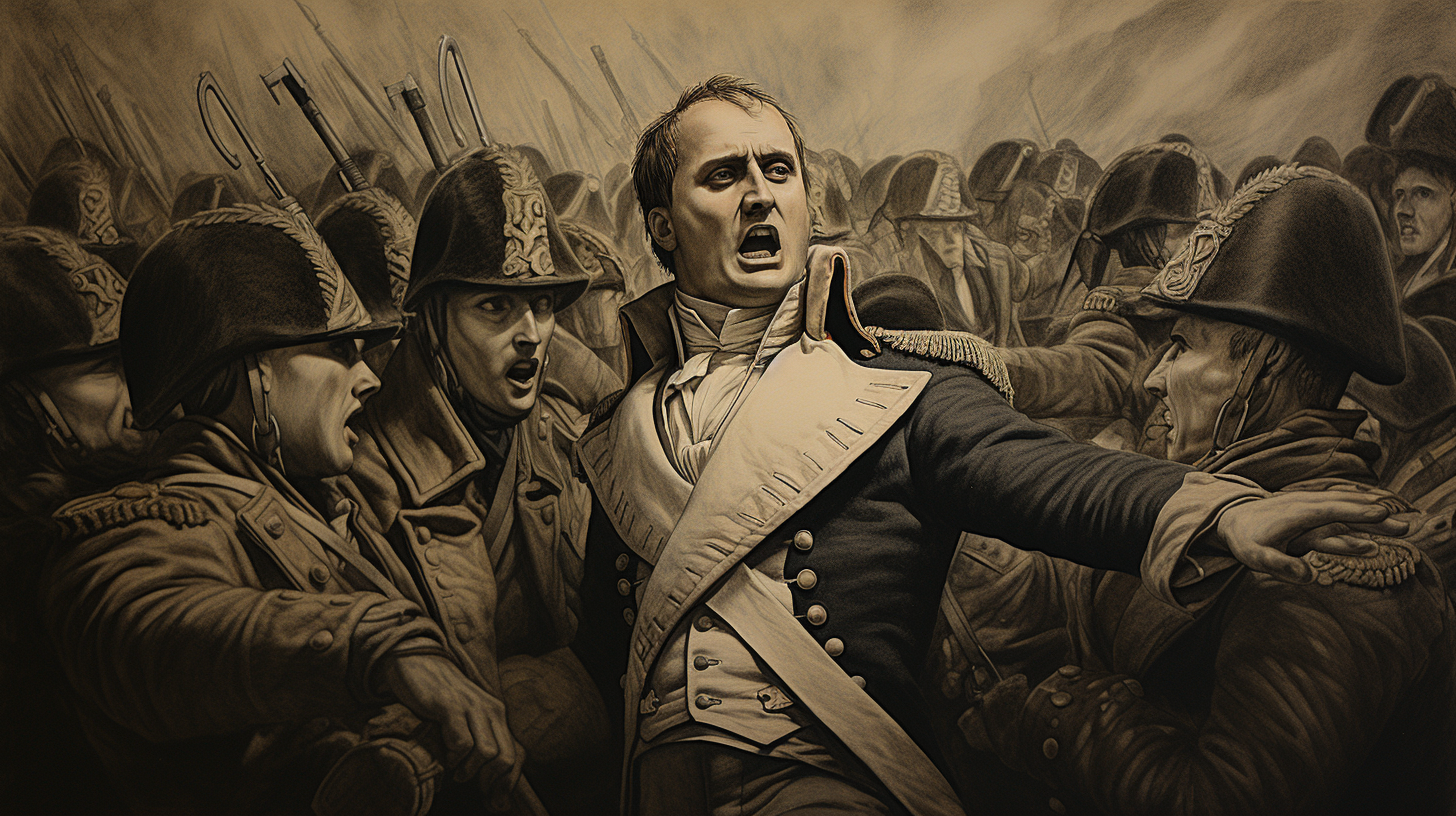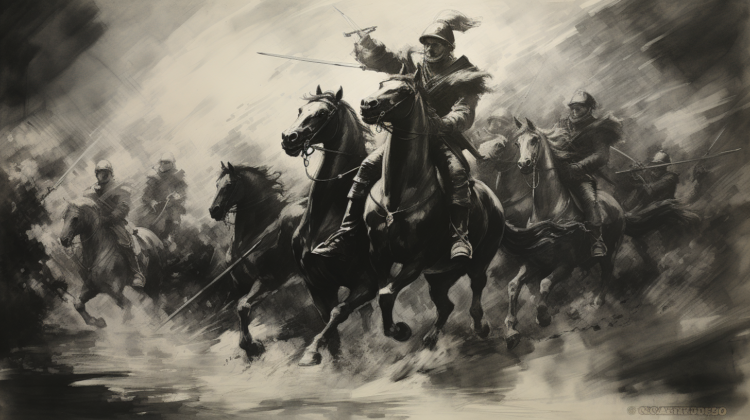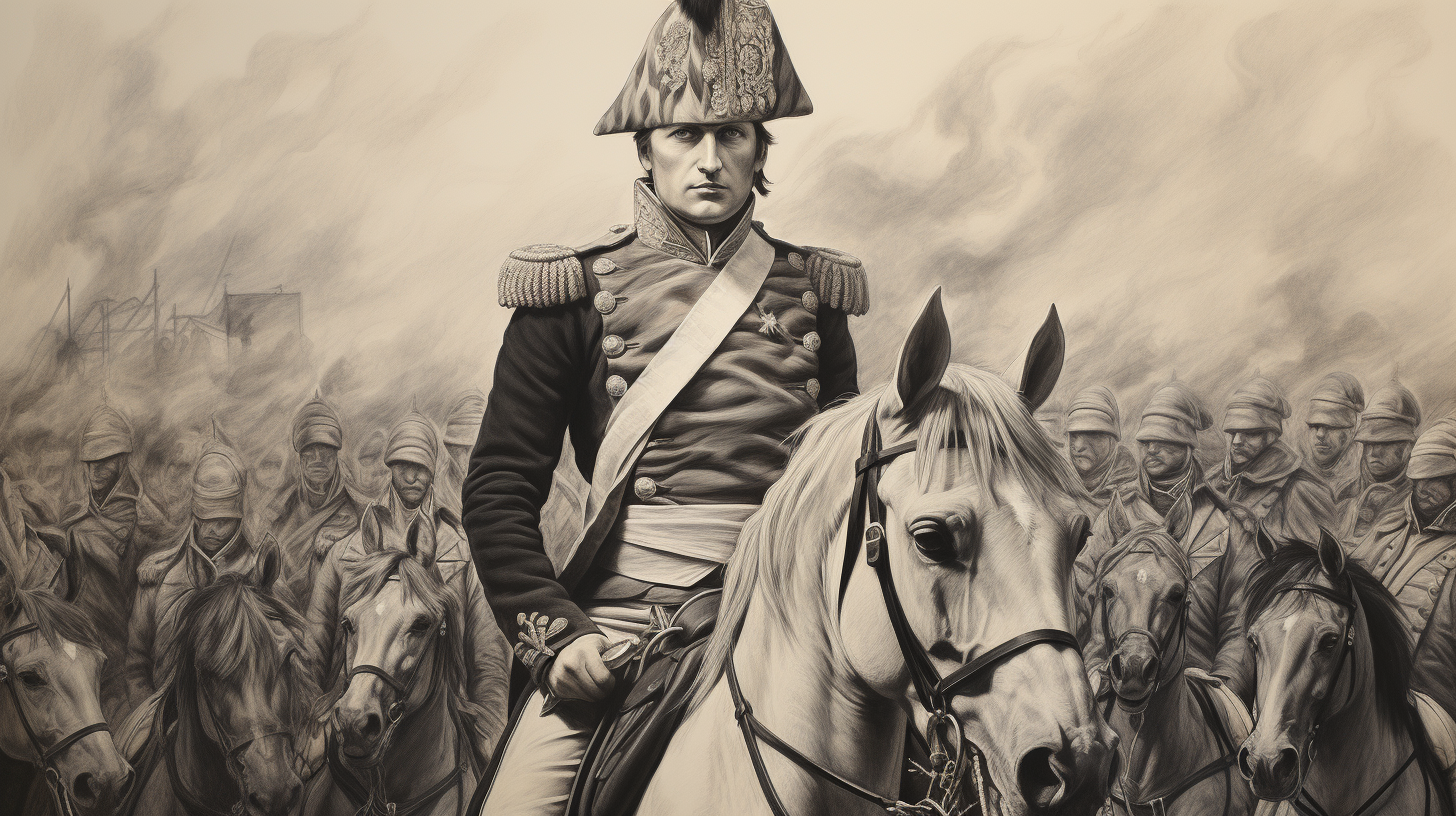The Concentration of Force: The Art of Hitting Hard
Next up in our Napoleonic warfare playbook is the principle of concentration of force.
It means Napoleon would gather his soldiers and focus them on one specific part of the enemy’s line, often their weakest point.
It’s like using a hammer to hit a crack in a wall – hit it hard enough, and the whole wall comes tumbling down.
But how did he know where to hit? Well, Napoleon was a master of surveillance. He constantly gathered intelligence, scouted enemy positions, and kept an ear to the ground.
No detail was too small, and no information too trivial. It all went into choosing the perfect place to strike.
Flexibility: The Dance of Battle
Lastly, but most certainly not least, is flexibility. Napoleon knew the battlefield was an ever-changing dance floor, with moves and countermoves coming in fast. He understood the value of being able to adapt quickly to changing circumstances.
He trained his men to be versatile and shift roles and tactics as the situation demanded. If speed was the tempo and concentration of force was the rhythm, then flexibility was the freestyle that won Napoleon many a battle.
Sounds simple enough, right? But remember, these principles take a keen mind to implement effectively. Napoleon’s genius lay in his ability to seamlessly blend these elements into a potent mix that repeatedly confounded his enemies.
The Grand Battery: A Game-Changing Tactic
In the context of Napoleonic warfare, the Grand Battery was an innovation that took the idea of “strength in numbers” to a whole new level.
Napoleon would round up his cannons – and we’re talking dozens, even hundreds at times – and have them all focus their firepower on a crucial point in the enemy’s lines. It wasn’t just a sprinkle of artillery fire. It was a concentrated, relentless downpour.
And the effect? Devastating. Imagine being on the receiving end of that storm of cannonballs.
Not only would it physically tear through enemy lines, but it would also create a sense of chaos and panic. Maintaining order or following a battle plan is complicated when a wall of artillery fire is hammering you.
But the genius of this tactic goes beyond the sheer power of the artillery. By focusing on one critical point, Napoleon could disrupt the enemy’s formation, creating a weak spot he could exploit with his infantry or cavalry.
The Grand Battery was like a well-placed jab in a boxing match – it could stagger the enemy and create an opening for the knockout punch.
Morale is Everything in Napoleonic Warfare
Napoleon was ahead of his time in understanding that battles were won as much in the minds of soldiers as on the battlefield. He realized the value of morale and often used his charisma and influential speeches to inspire his troops.
He’s known for saying, “The moral is to the physical as three to one,” highlighting the critical role of morale in warfare.
Napoleonic Warfare’s Impact on Today’s Military Tactics
If you’re wondering if Napoleonic warfare is still relevant today, the answer is a resounding yes. Many modern military strategies have roots in Napoleon’s tactics.
Today’s armies still value speed, the concentration of forces, flexibility, the use of mass firepower, and the importance of morale – all principles that were key to this approach.

We’re not saying that studying Napoleonic warfare will make you a military genius overnight. Still, it does give you a glimpse into the mind of one of history’s most influential military leaders.
And who knows? You might even pick up a strategic tip or two for your next board game night.











COMMENTS